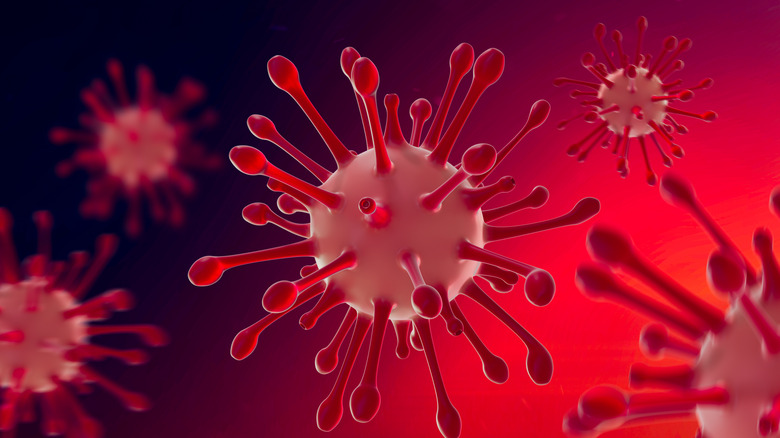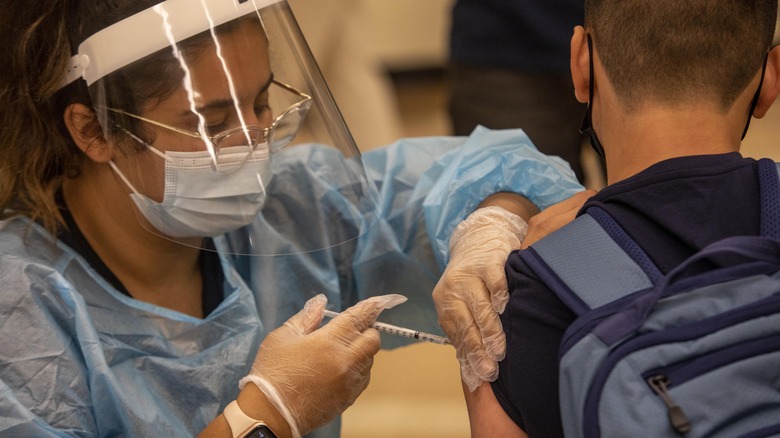What We Know About The COVID-19 Mu Variant
When founding father Benjamin Franklin said that there was nothing certain except for death and taxes, the coronavirus pandemic will have taught us that there is a third certainty — that coronaviruses like COVID-19 mutate, and that it has been doing that since it was first detected.
Mutations are natural. As Vox points out, mutations happen when a virus — any virus — changes its genetic code and as it infects someone. "Every time the virus replicates, or makes a copy of itself, it tries to make a copy that's identical," Adolfo Garcia-Sastre, director of Global Health and Emerging Pathogens Institute at Mount Sinai's Icahn School of Medicine said. Sometimes, these copies make the virus weaker (via ABC), but this hasn't happened in the case of COVID-19 in general, and with the Delta variant, in particular. Delta, which is now the most dominant strain, has become at about 50 percent more contagious than the original COVID-19 which was first found in Wuhan, China. It also has the ability to make fully vaccinated people sick.
This brings us to the latest variant to appear on the horizon of global health, the "Mu" variant, which is now being monitored by the World Health Organization, and which was recently classified as a "variant of interest."
Is the Mu variant something we should be worried about?
While calling an already disruptive and deadly virus can make some of us sit up (with alarm) and take note, some scientists like Allison Arwady of the Chicago Department of Public Health point out that variants of interest only mean there are developments within the virus that make it something that needs to be monitored more closely. That way researchers can tell if this type of COVID will become more virulent, more deadly, or which might have the ability to evade antibodies and vaccines with more ruthless efficiency (via NBC 5 Chicago). "Once we see a variant of interest clearly have an impact, meaning it is more contagious, it might be evading a treatment, it's clearly making people sicker — that makes it into a variant of concern," Arwady said.
Dr. Anthony Fauci has also said that the "Mu" variant isn't something we should be thinking about right now, since it isn't an immediate threat to the United States. While the Mu variant has the potential to be a problem because it seems to be able to dodge the immunity we get from both antibodies and vaccines, there is still plenty scientists don't know (via The New York Times).
Which means if we are vaccinated and masked up, the Mu variant is not something we need to worry about, until we're told otherwise, that is.

